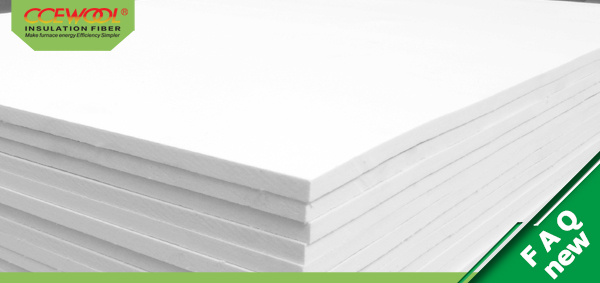In modern high-temperature industrial equipment, frequent operations such as system startups and shutdowns, door openings, heat source switching, and rapid heating or cooling have become routine.
For ceramic fiber boards, the ability to withstand such thermal shock is critical to maintaining the integrity of insulation layers and ensuring stable equipment operation. Today, thermal shock resistance is increasingly recognized as a key indicator of the engineering reliability of ceramic fiber insulation boards.
As a lightweight insulation material primarily composed of Al₂O₃ and SiO₂, ceramic fiber board inherently offers advantages such as low thermal conductivity, low heat storage, and lightweight design. However, under prolonged high-temperature conditions, repeated thermal cycling can lead to cracking, delamination, and material spalling. These issues not only degrade insulation performance but also increase maintenance frequency and energy consumption.
To meet these real-world challenges, CCEWOOL® ceramic fiber board has been specially optimized for thermal shock conditions, focusing on fiber bonding strength and uniformity in microstructure. Through carefully selected raw materials and tightly controlled forming processes, board density and internal stress distribution are managed to enhance stability during repeated thermal fluctuations.
Manufacturing details determine thermal shock performance
CCEWOOL® boards are manufactured using an automated compression molding process, combined with multi-stage drying treatment. This ensures thorough moisture removal, minimizing the risk of microcracks caused by residual vapor during use. In thermal shock testing above 1000°C, the boards maintained structural integrity and consistent thickness, validating their engineering performance under extreme conditions.
Real-world project feedback
In a recent aluminum processing system upgrade, a customer experienced early insulation board failure around the furnace door area due to frequent opening and closing. They replaced the original material with CCEWOOL® high-density ceramic fiber board. After multiple operating cycles, the customer reported that the new material remained structurally intact with no visible cracking, and maintenance frequency dropped significantly.
Ceramic fiber insulation board is not just a high-temperature insulation material—it plays a vital role in enabling high-frequency thermal cycling systems to operate reliably over the long term. With thermal shock resistance as a core development focus, CCEWOOL® ceramic fiber board aims to deliver more reliable and sustainable insulation solutions for industrial customers.
Post time: Jul-14-2025


